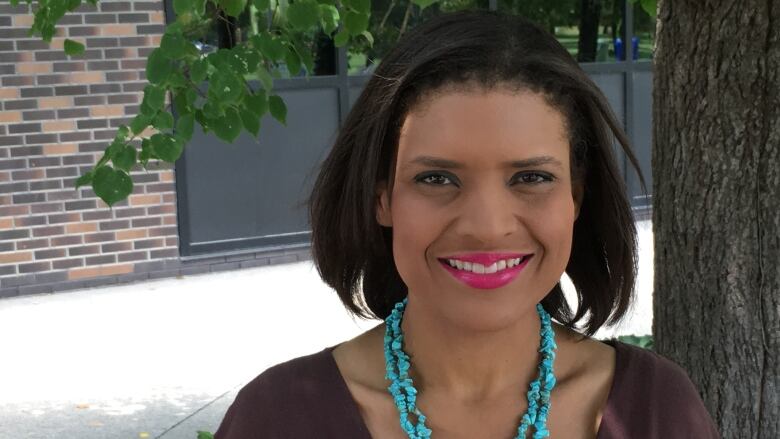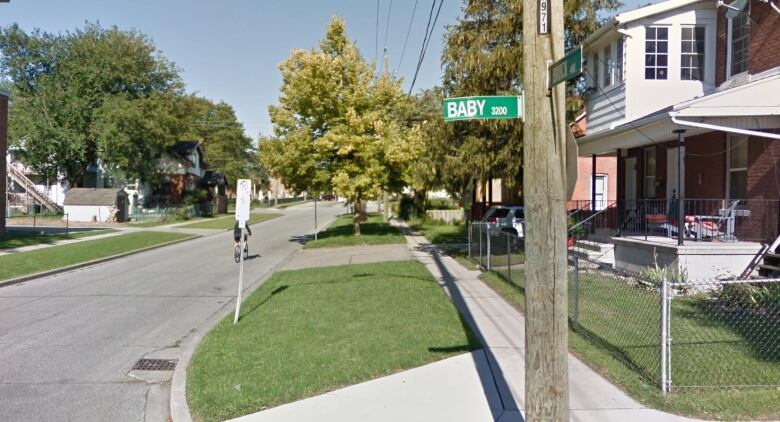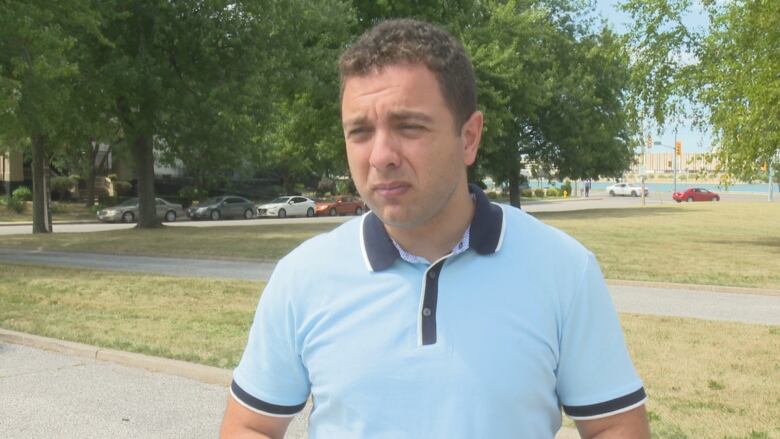Some of Windsor's streets are named after slave owners. Let's talk about them, says Black historian
Irene Moore Davis doesn't want to rename them but suggests signage to tell history

Some of Windsor's streets are named after former slave owners and according to a Black historian, it's time for the community to talk about who exactly should be honoured.
Askin, Labadie, Peter, Russell and Baby are all streets named after prominent figures in Windsor's history who also owned slaves at somepoint.
"What we accept, what we honour, who we choose to honour says a lot about what we value as a society and maybe it's time to take a look at some of those," said Irene Moore Davis, president of the Essex County Black Historical Research Society.
Moore Davis said the Babys were "founders of this community" but also owned slaves, and Antoine Descomptes Labadiehad many as well.
"In fact, in his will, he allows his wife to pick her two favourite slaves and says that the rest should be split up and sold so that the kids can get the proceeds. How heinous is that?"
But it's not just streets which been named after former slave owners. Schools and buildings throughout the Windsor-Essex region also don the names of controversial figures from the past.
For example, General Amherst High School is named after General Jeffrey Amherst, a military leader who called for the use of disease-laced blankets to kill Canada's Indigenous peoples.
Matthew Elliott, considered as one of the founding fathers of Amherstburg,owned as many as 60 slaves, according to Moore Davis.
"He had a whipping ring that is now part of the artifacts at the Amherstburg Freedom Museum. He was clearly using terror and torture to keep his slaves in line," she said.
Why an all-out name change may not be the best option
An argument can be made that if you just remove street namesand other controversial names of buildings altogether, no one will remember "the more complicated aspects of that history," Moore Davis said.
Instead, she suggests adding signagelike commemorative plaquesalong these streets for people to read and learn about theaspects of their origins.

"It's better to educate people about the street names and the people and everyone who was involved both the slave owners and the enslaved and what their roles were and how those other individuals have been overlooked in the story of how this community was founded," said Moore Davis.
"It may be more constructive actually to leave the street names and focus on what's been excluded to date and what we can learn from that. It's all a conversation worth having."
Fabio Costante, city councillor for Ward 2 home toPeter, Russell and Baby Streets said he has not received any calls about this specific issue, but would be open to learning more about the history of the people that are named,what they represented and who they represented.
"If ... administration does the research and reports back to council on findings that there were slave owners and that their acts were things that our society today would never tolerate and accept, then I think it's something that we should seriously consider moving forward on," Costante said.

"I think one of the great benefits from this type of exercise is, at the very minimum, it's going to be an awareness exercise and an educational exercise to a lot of folks that may not have been aware of who these people were and what they represented and so I think that's a very positive step forward."
The "strong convictions" of those who take issue with the originsof certain street namesneed to be respected, Costante said, adding we're currently living in "a transformational moment in our collective history."
In the wake of anti-Black racism protests happening throughout Canada and the U.S., Moore Davissaid it's difficult for people to live on a street that is named after someone who practiced keeping people "in a state of enslavement or low income or genocide."
It may be more constructive actually to leave the street names and focus on what's been excluded to date and what we can learn from that. It's all a conversation worth having.- Irene Moore Davis
"I think we really have to have those conversations. Who do we want to honour? Who do we want to respect? Who do we want to promote to our kids to the future generations as people to look up to?" she said.
"We may not be able to change the street names, but it's worthwhile to have a discussion about how to mark them so that people are aware of the other side of that history and of the history of slavery in our region that really enriched these people and allowed them to do all of these things for which we consider them so accomplished."
Moore Davis said she's open to the idea of renaming streets which bear the namesake of slave owners or people who were unfair to Indigenous people "in this region or elsewhere." By leaving them alone, she added, that can result in young people feeling disenfranchised or misrepresented.
"They don't see themselves reflected in the names of schools or in the names of buildings. They see these rich, white individuals from from past decades or centuries," she said.
"It's very hurtful to them to know that these individuals are being lifted up and that individuals from other backgrounds in this community who have contributed so much can't get any kind of recognition."












_(720p).jpg)


 OFFICIAL HD MUSIC VIDEO.jpg)
.jpg)



























































































